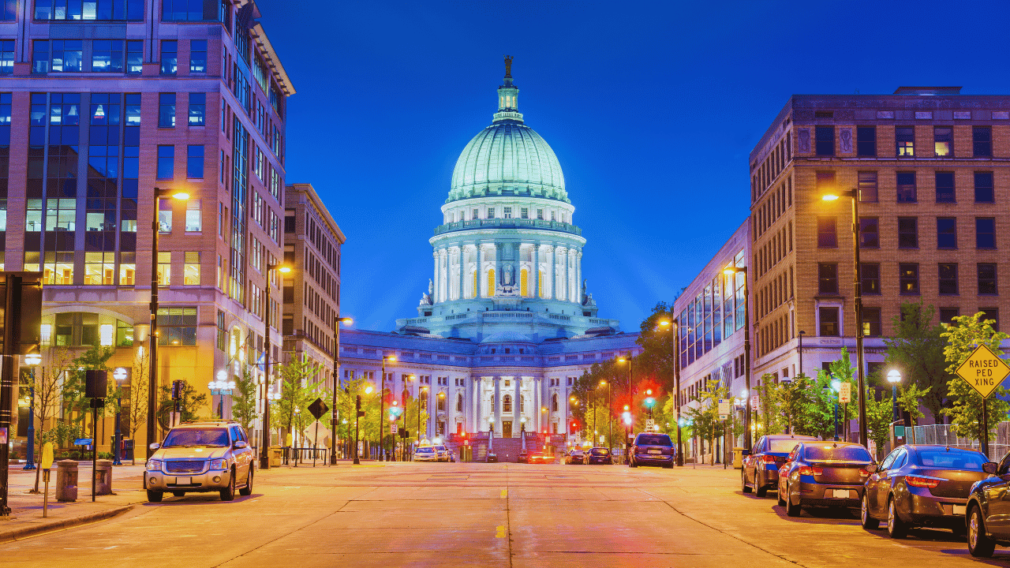Wisconsin Assembly Scraps Online Sports Betting Vote Amidst Heavy Opposition
The Wisconsin State Assembly abruptly removed a bill to legalize online sports betting from its agenda on Wednesday. Majority Leader Tyler August (R-Walworth) confirmed the decision just hours before a scheduled vote. The move effectively halts the state’s progress toward statewide mobile wagering for the current legislative session.

The bill, known as Senate Bill 592, had previously cleared a committee with a unanimous 10-0 vote. This bipartisan support suggested a smooth path to passage. However, the proposal faced a sudden surge of resistance from a mix of conservative legal groups and major commercial gambling operators. Representative August stated that while the bill is off the table for now, he intends to reintroduce the measure early next year.
The “Hub and Spoke” Strategy
Senate Bill 592 attempted to modernize Wisconsin’s gambling laws using a specific legal framework known as the “hub and spoke” model. Currently, placing a bet outside of authorized zones is a Class B misdemeanor. The new law would have created an exemption for mobile wagers, provided the digital transaction is processed on a server physically located on tribal land.
Under this system, a bettor could place a wager from their couch in Milwaukee or a bar in Madison. Legally, however, the “bet” would take place where the server sits—on sovereign tribal territory. This approach mirrors the model currently used in Florida. It aims to grant statewide access to players while maintaining the tribes’ exclusive rights to manage gaming operations.
If the bill eventually passes, it is only the first step. The tribes would still need to renegotiate their gaming compacts with the state. These agreements then require federal approval from the U.S. Department of Interior to ensure compliance with the Indian Gaming Regulatory Act of 1988.
Squeezed from Both Sides
The bill ultimately stalled because it drew fire from two opposing groups for entirely different reasons.
1. The Commercial Operators National heavyweights like DraftKings, FanDuel, BetMGM, and Fanatics, represented by the Sports Betting Alliance, lobbied hard against the bill. Their primary grievance was financial. The legislation mandated that external commercial partners must surrender at least 60% of their gross mobile revenue to the Wisconsin tribes.
Damon Stewart, a representative for the Alliance, called this requirement “economically unfeasible.” He argued that online sports betting is a low-margin business with high capital costs. The Alliance warned that if the tax rate is too high, major brands will simply refuse to enter the market. This would leave Wisconsin bettors with few legal options, encouraging them to continue using illegal offshore sites or crossing the border to Illinois.
2. Conservative Legal Groups On the other side of the aisle, conservative organizations like the Wisconsin Institute for Law and Liberty (WILL) and Wisconsin Family Action attacked the bill’s constitutionality. WILL argued that the State Assembly lacks the authority to expand gambling definitions without a constitutional amendment. They also claimed the bill would grant the tribes an unfair monopoly. Wisconsin Family Action focused on the social costs, citing increased risks of addiction, bankruptcy, and family breakdown associated with having a casino in every pocket.
The Push for Revenue
Despite the setback, the bill retains powerful backers. The Forest County Potawatomi Community, the Ho-Chunk Nation, and the Metropolitan Milwaukee Association of Commerce all support the measure. The state’s professional sports teams: the Milwaukee Brewers, Bucks, and Packers, also advocate for legalization.
Supporters argue that Wisconsin is ignoring financial reality. They estimate that residents already wager nearly $1 billion annually through illegal channels. By failing to regulate this market, the state and the tribes miss out on significant revenue while consumers remain unprotected. Governor Tony Evers has signaled he is open to signing the legislation in the future, provided that the tribal governments remain the primary regulators of the industry.
Recommended
